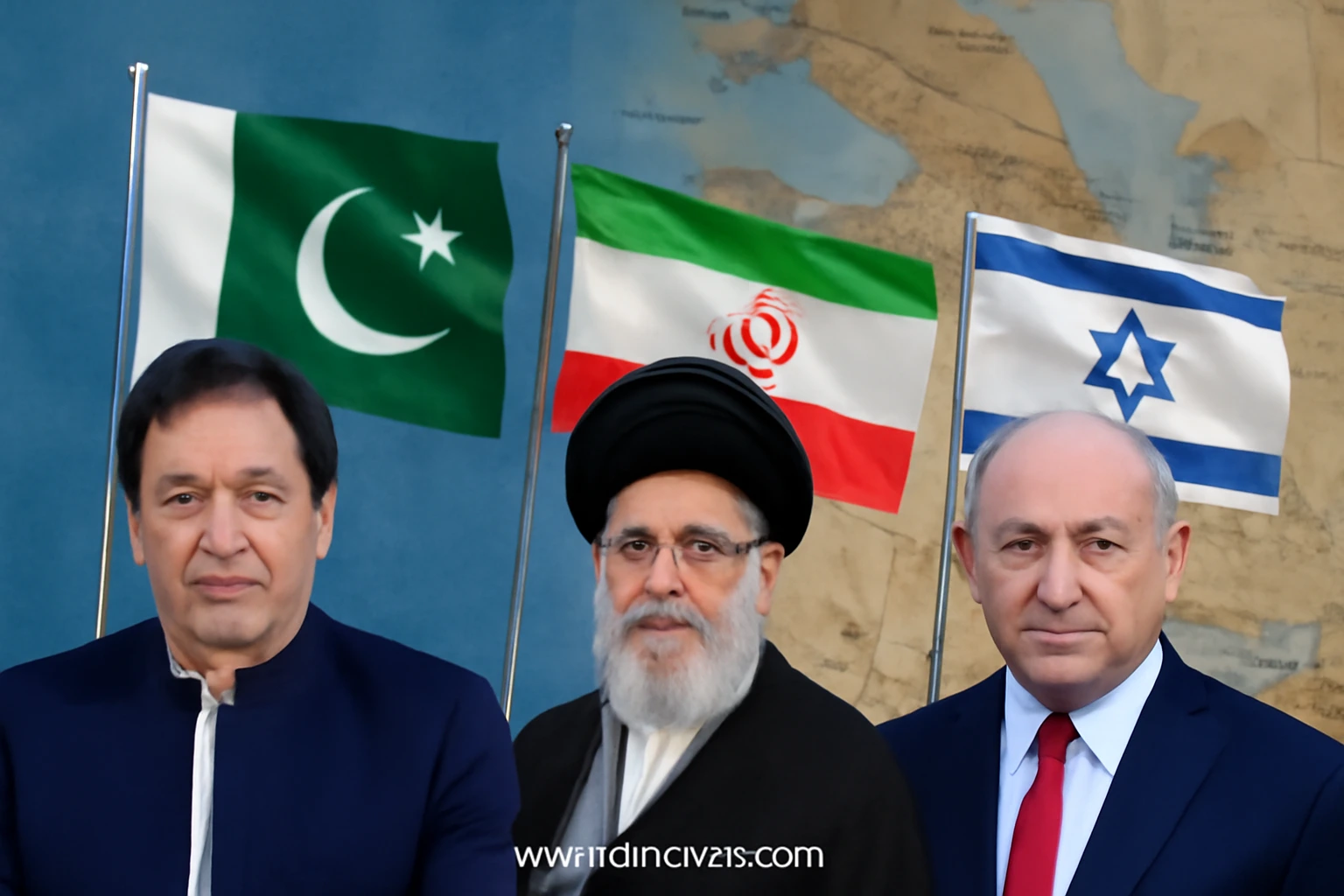Pakistan, the Iran-Israel Conflict, and Information Warfare
 Pakistan, the Iran-Israel Conflict, and Information Warfare ,one nation voice , First Nation Voice ,Voice Of parliament, Voices
Pakistan, the Iran-Israel Conflict, and Information Warfare ,one nation voice , First Nation Voice ,Voice Of parliament, Voices
Pakistan, the Iran-Israel Conflict, and Information Warfare
As the Iran-Israel conflict mounts, the world has not only seen the possibility of a military confrontation, but also the rising concept of information warfare. This digital age has not only seen warfare in the physical space but also cyberspace, media stations, and social networks. The conflict of narratives influences the development of world opinion, it affects the geopolitical reality, and dictates the global diplomatic agenda. Even though it continues to have a physical neutral status, Pakistan is frequently dragged into this intricate story, including disinformation.
Information warfare refers to the techniques of manipulating information by strategically using it to wield influence on people and shape policy, and destroy opponents. In the Iran-Israel case, military signaling on both sides of the border is occurring interactively as the combatants attempt to limit the potential image of their activities amongst the global community. Countries such as Pakistan, which happen to be at the epicenter of regional security, are susceptible to being influenced accordingly through such narratives.
Pakistan has ended up in the middle of conjectural and misinformed discussions, although the state had a bigger role in the war. One outstanding case is the Daily Mail news report, which alleged that Pakistan was geared to launch a nuclear attack in react to such developments that were going on in the region. Such an unfounded accusation was promptly rejected by the Pakistani Ministry of Foreign Affairs, defining it as groundless and irresponsible. Incitement-mongering by the media over nuclear-armed states not only misconceives what is intended but also skews the world discussions, causing meaningless worldwide tension.
The use of disinformation is threatening, especially to nuclear weapons. The perception that a nuclear-armed nation with an aggressive stance portends diplomatic tension, misleading global decision-making, and tampering with security in a region or country. In the case of Pakistan, erroneously being linked to the Iran-Israel war not only wears it down as a region where peace is advocated, but also religion itself. Pakistan is supposed to remain distant in the conflict between Iran and the West, even though it has deep connections to the actors.
The assistance that Pakistan has been giving to Iran is based on political, ethical, and moral reasons. Pakistan has known Iran as an influential figure in the stability within the region, especially in West Asia. This support is based on the fact that the country believes in regional independence, avoidance, and peaceful co-existence of nations. Pakistan has always urged the use of dialogue, diplomacy, and peaceful means to solve regional conflicts. Pakistan has, in this regard, supported Iran because it holds the view that every country is entitled to self-determination and regional security without any form of coercion and aggression by other powers.
Nevertheless, Pakistan does not support Iran in terms of military intervention and approving brutal acts, such as nuclear attacks. Pakistan continues to offer its regional ally diplomatic and moral support, although it is well aware of the fact that the deployment of nuclear bombs is a serious escalation and it will cause devastating effects not only in the region but also to the global community.
Pakistan’s peace policy and diplomacy form a basis for its policy on the Iran-Israel conflict. On the one hand, being in common on the issues of state sovereignty and rejecting the interference of foreign countries, Pakistan does not support the aggressive measures that can aggravate the situation in the crisis. The nation has been continuously advocating restraint, and it wants the relevant sides to enter meaningful dialogue and seek a peaceful resolution of the conflict.
A number of aspects make Pakistan a vulnerable country to being attracted to false accounts. It is geographically located between Iran and Afghanistan, becoming the eye of the regional security. Also, the nuclear power of Pakistan is gaining too much attention in the rest of the world, which is why the country is a subject of sensational media focus and geopolitical interests. Moreover, the emerging Pakistan-China ties and their participation in the China-Pakistan Economic Corridor (CPEC) have placed it in the context of a larger global realignment.
The official status of Pakistan is neutrality. The Daily Mail incident acts as a lesson concerning the risks of information warfare and how important clarity and consistency of the narrative are. As information warfare becomes a rather common mechanism in the international agenda, Pakistan needs to make proactive attempts to protect its narrative and diplomatic value.
This situation, illustrated in the Iran-Israel conflict, shows one of the most important facts that the conflict today is not waged solely on the battlefield but also on the pages of newspapers and journals, in social networks, and in the field of international relations. Pakistan, in this regard, has to be firm in its pursuit of peace. The diplomatic and peaceful solutions should be targeted by Pakistan to support Iran on an ethical, political, and moral basis, since no acerbation of any kind, especially to nuclear warfare. The most apt protective shield to Pakistan would be to continue to be clear, credible, and consistent in its diplomatic ways.







